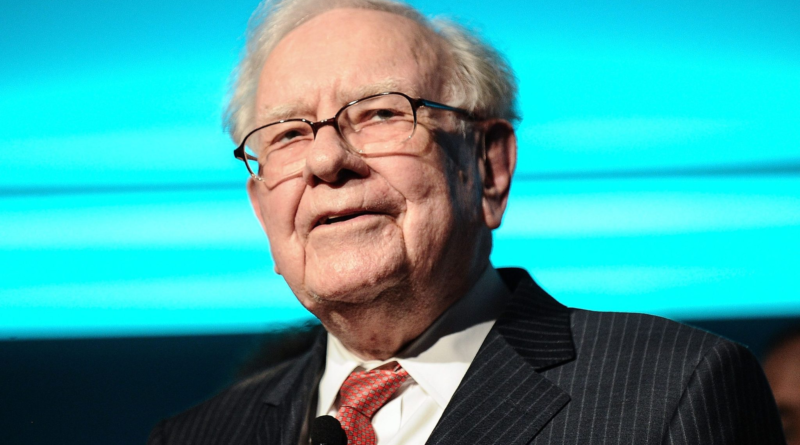Warren Buffett says his white male status gave him confidence early on that he would one day become rich
Decades of success and $150 billion later, investor Warren Buffett has identified one key to his unquestioned success: being a white guy.
In a Monday letter to shareholders announcing more than $1 billion in shares to be donated to his family’s charities, Buffett was also candid about his path to becoming the world’s seventh-richest person.
“As I write this, I continue my lucky streak that began in 1930 with my birth in the United States as a white male,” he wrote.
His sisters, Doris and Roberta, were promised the same rights as him under the Constitution’s 19th Amendment in 1920, Buffett said, but were only truly granted the same privileges decades later, thanks to the pioneering work of Billie Jean King, Sandra Day O’Connor, and Ruth Bader Ginsburg.
“So favored by my male status, very early on I had confidence that I would become rich,” he added.
For almost 30 years, Buffett has spoken publicly about winning the “ovarian lottery,” using the phrase in a 1997 Berkshire Hathaway shareholder meeting. He claimed success is mostly predetermined by the womb from which one emerges, with hard work and motivation playing secondary roles.
Indeed, Buffett’s father, Howard, was an investor turned politician who started his own stock brokerage firm before serving as a member of the U.S. House of Representatives from Nebraska.
“Just in my own case,” Buffett said in a 2013 interview. “I was born in 1930, I had two sisters that have every bit the intelligence that I had, have every bit the drive, but they didn’t have the same opportunities.”
Buffett’s admission of luck driving his prosperity inspired his ethos of philanthropy and his ultimate goal since 2006 to offload 99% of his fortune to charities before his death. He said his family’s affluence has been both a way to help others—and a heavy reminder he wields more wealth than over 8 billion people.
“Equal opportunity should begin at birth and extreme ‘look-at-me’ styles of living should be legal but not admirable,” Buffett said in his letter on Monday. “As a family, we have had everything we needed or simply liked, but we have not sought enjoyment from the fact that others craved what we had.”
A century of Buffett
But Buffett views his financial resources not only as a blueprint for philanthropy, but also an illustration of how wealth has ballooned in the U.S. over the past 100 years.
“In no way did I, or anyone else, dream of the fortunes that have become attainable in America during the last few decades,” Buffett said. “It has been mind-blowing—beyond the imaginations of Ford, Carnegie, Morgan, or even [John] Rockefeller.”
Rockefeller, a “robber baron” and eventual philanthropist whose oil empire gave him a peak net worth of $900 million in 1913, would be worth about $15 billion today, according to the Wall Street Journal. Other economists have argued Rockefeller’s fortune would be closer to $1.4 billion, or about $24 billion today. Still, both estimates pale in comparison to Buffett’s $150 billion net worth, per the Bloomberg Billionaires Index.
“Billions became the new millions,” Buffett said.
Buffett’s own story is a microcosm of the explosion of America’s wealth. The cloud of the Great Depression loomed over Buffett in his 1930 birth year, but he was still better positioned to succeed than his Black counterparts, who experienced unemployment rates that were two to three times greater than those of white Americans.
The young Omaha native was investing in the stock market by age 11 and filling out tax returns by 13. He had earned $53,000 by 16. By the time he became CEO and chairman of Berkshire Hathaway in the 1970s, Buffett was worth about $35 million.
In the same period of Buffett’s success, America’s riches have also grown healthily, but unevenly. The percentage of upper-income Americans grew from 14% to 20% of the adult population from 1971 to 2019, according to the Pew Research Center. The share of lower-income Americans likewise grew from 25% to 29%.
But Buffett argues his own endured success and deep pockets are a way to diminish, not exacerbate, this gap.
“By not stepping on any banana peels, I now remain in circulation at 94 with huge sums in savings—call these units of deferred consumption—that can be passed along to others who were given a very short straw at birth,” he said.




